Nurturing potential: interventions for young children with learning disabilities
Posted on: March 19, 2024by Ben Nancholas

Learning disabilities in young children can pose unique challenges to their overall personal development as well as their academic success as they grow. This is why identifying – and addressing – these challenges through early intervention and tailored support is so important.
But early intervention is a team sport. It requires engagement and collaboration from specialists, teachers, and families who all work together and create supportive environments that nurture the potential of every child.
Common learning disabilities
Learning disabilities encompass a range of conditions affecting a child’s ability to process information and learn. Common conditions include:
- Dyslexia. Dyslexia is a widely recognised learning disability that primarily affects a person’s ability to read, write, and spell. People with dyslexia may struggle with phonological awareness and have difficulty decoding words. Early interventions may include specialised reading programmes and one-on-one support to help dyslexic children develop strong literacy skills.
- Attention Deficit Hyperactivity Disorder (ADHD). ADHD is characterised by persistent patterns of inattention, hyperactivity, and impulsivity. Children with ADHD may find it challenging to focus on tasks, follow instructions, and regulate their impulses. Interventions often involve behavioural strategies, including structured routines, clear expectations, and, in some cases, medication to enhance concentration.
- Speech and language disorders. Speech and language disorders present as difficulties in communication, including speech sound disorders, language processing issues, and expressive or receptive language delays. Speech therapists play a vital role in interventions, providing tailored exercises and activities to improve communication skills and language development in children.
- Developmental delays. Developmental delays can manifest in various areas, including motor skills, cognitive abilities, and social-emotional development. Early intervention services, such as occupational therapy and developmental assessments, aim to identify and address these delays, ensuring children receive the necessary support to reach developmental milestones.
- Autism Spectrum Disorder (ASD). ASD is a neurodevelopmental disorder characterised by challenges in social interaction, communication, and repetitive behaviours. Early intervention often involves creating structured and supportive environments, behavioural therapies, social skills training, and speech-language therapy to enhance communication abilities.
Common interventions
Interventions for learning disabilities should be evidence-based and tailored to each child’s unique requirements. They might include:
- Behavioural interventions. Behavioural interventions are developed for children with behaviour challenges, and focus on modifying and shaping behaviours through positive reinforcement, strengthening and nurturing bonds between children and their families, and creating integrated strategies that help children develop more constructive attitudes and actions.
- Adaptive educational settings. Adaptive education aims to create more inclusive and accessible learning environments. This may involve providing additional resources – such as assistive technology – in the classroom, or creating individualised learning plans for children and adolescents with diverse learning styles to help accommodate the individual needs of pupils with learning or developmental disabilities.
- Support services. Specialised support services, offered by professionals such as speech therapists, occupational therapists, and educational psychologists, play an essential role in intervention. These services are tailored to address specific challenges and provide targeted interventions that support children in overcoming barriers to their learning and development.
- Early identification and referral. Early identification programmes are focused on spotting signs of learning disabilities in young people as early as possible. Healthcare professionals, such as health visitors, as well as educators and parents all play a vital role in identifying red flags and referring children to appropriate specialists for assessments as needed.
The importance of early intervention
Early intervention is one of the most valuable tools in addressing learning disabilities in children.
During the early years of a child’s development, their brains are highly adaptable, so early action in addressing any challenges is more likely to promote positive outcomes.
“Effective early intervention works to prevent problems occurring, or to tackle them head-on when they do, before problems get worse,” explains the Early Intervention Foundation. “It also helps to foster a whole set of personal strengths and skills that prepare a child for adult life.”
The risks and consequences of not intervening
Failing to intervene early in a child’s life when learning disabilities are present can have profound consequences, and create increased risk of negative outcomes. For example, unaddressed learning difficulties may lead to behavioural problems, low self-esteem, and challenges in forming social connections. Additionally, the academic gap between children with and without disabilities can widen, increasing the risk of long-term inequalities.
Creating intervention strategies
High-quality intervention strategies may incorporate a mix of intervention techniques, and should be driven by each individual child’s needs.
The role of specialists
Specialists – such as paediatricians, educational psychologists, mental health professionals, childcare and social care workers, and other special education professionals – are a key component in the intervention process. Through assessments, these specialists can identify learning disabilities, provide diagnoses, and recommend appropriate interventions, and their expertise contributes to the tailored strategies that address the specific special educational needs of each child.
The role of teachers
Teachers are on the front lines of intervention for school-age children, and they are often the ones to implement the intervention strategies and adaptations outlined by specialists, GPs, or other specialist healthcare providers. Teachers also serve as advocates for their pupils, often facilitating communication between specialists and carers.
The role of parents, guardians, and families
Parents, guardians, and children’s wider families and caregivers are all integral partners in the intervention process. They reinforce the intervention strategies at home, providing continuity and support beyond the school environment – a powerful force for creating positive outcomes.
The importance of collaboration between specialists, teachers, and families
Collaboration between specialists, teachers, and families will directly influence the effectiveness of any intervention strategy. What collaboration looks like may change from strategy to strategy, but typically includes open communication channels, regular updates on a child’s progress, and joint problem-solving sessions that reinforce the overall support system.
It’s also worth noting that there are other resources available to support intervention strategies. These include organisations such as the Challenging Behaviour Foundation and Cerebra, which offer guidance for caregivers and other stakeholders who are navigating the complexities of early learning disabilities, impairments, and challenges.
Play a critical role in the development of children
Create positive early childhood education experiences with the 100% online MA Education with Early Childhood degree from North Wales Management School. This flexible, careers-focused master’s degree has been created specifically for busy working professionals in early childhood education roles. It will enable you to reinforce your practical work experience with the education and early childhood theory, tools, and techniques that will help you to achieve career success as a practitioner in early childhood education.
In addition to core modules in areas such as contemporary issues in early childhood, learning technology, and critical pedagogy, you’ll also undertake a module covering inclusive practice. Studying this module, you will develop a critical awareness of issues relating to inclusion and additional learning needs, as well as the positive attitude, policies, and practices that support the engagement and achievement of all people in education and community settings.





